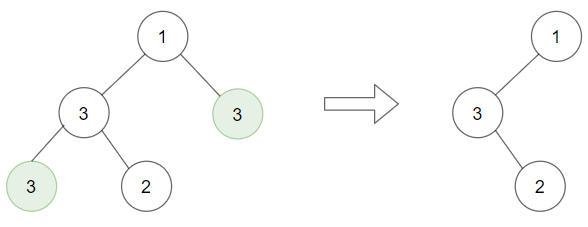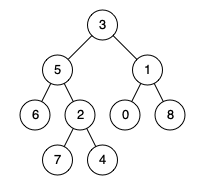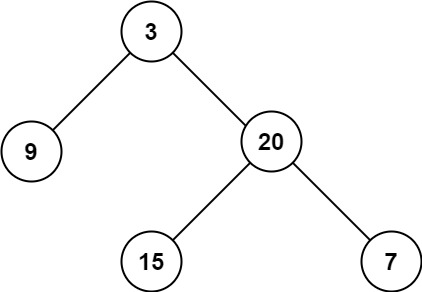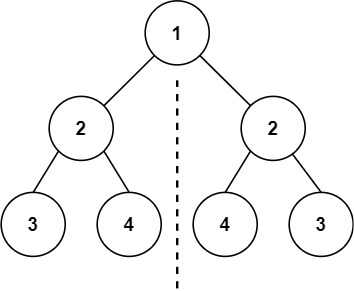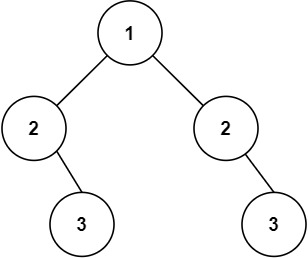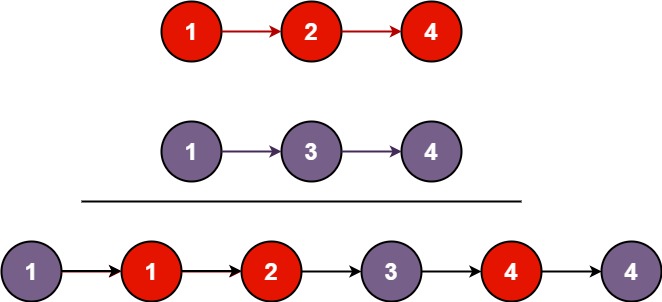You are given an array of k linked-lists lists, each linked-list is sorted in ascending order.
Merge all the linked-lists into one sorted linked-list and return it.
Example 1:
Input: lists = [[1,4,5],[1,3,4],[2,6]] Output: [1,1,2,3,4,4,5,6] Explanation: The linked-lists are: [ 1->4->5, 1->3->4, 2->6 ] merging them into one sorted list: 1->1->2->3->4->4->5->6
Example 2:
Input: lists = [] Output: []
Example 3:
Input: lists = [[]] Output: []
Constraints:
k == lists.length0 <= k <= 10^40 <= lists[i].length <= 500-10^4 <= lists[i][j] <= 10^4lists[i]is sorted in ascending order.- The sum of
lists[i].lengthwon’t exceed10^4.
Idea:
Divide and Conquer
Solution:
/**
* Definition for singly-linked list.
* function ListNode(val, next) {
* this.val = (val===undefined ? 0 : val)
* this.next = (next===undefined ? null : next)
* }
*/
/**
* @param {ListNode[]} lists
* @return {ListNode}
*/
var mergeKLists = function(lists) {
return merge(lists, 0, lists.length - 1);
};
function merge(lists, l , r) {
if (lists.length === 0) return null;
if (l === r) return lists[l];
let mid = Math.floor((l + r) / 2);
let l1 = merge(lists, l, mid);
let l2 = merge(lists, mid + 1, r);
return mergeTwoLists(l1, l2);
}
var mergeTwoLists = function(l1, l2) {
// If one of the list is empty, return the other one.
if (l1 === null) {
return l2;
}
if (l2 === null) {
return l1;
}
// The smaller one becomes the head.
if (l1.val < l2.val) {
l1.next = mergeTwoLists(l1.next, l2);
return l1;
} else {
l2.next = mergeTwoLists(l1, l2.next);
return l2;
}
};
